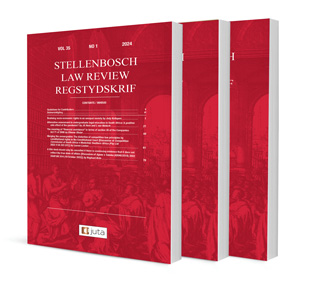
A title deed should only be cancelled if there is convincing evidence that it does not reflect the true state of affairs [Discussion of Agnes v Tobeka (42040/2018) 2022 ZAGPJHC 814 (19 October 2022)]
Author: Reghard Brits
ISSN: 1996-2193
Affiliations:BCom (Law) LLB LLD, Extraordinary Professor, University of the Western Cape; Research Fellow, Stellenbosch University
Source: Stellenbosch Law Review, Volume 35 Issue 1, 2024, p. 78 – 92
https://doi.org/10.47348/SLR/2023/i1a5
Abstract
The court in Agnes v Tobeka (42040/2018) 2022 ZAGPJHC 814 (19 October 2022) ordered the cancellation of five deeds of transfer to restore the original owners as the registered owners of the property in question. The order was based on a finding that the sale in execution of the property two decades before was invalid because the creditor did not follow the correct judicial process. Because the transfer pursuant to the sale in execution was invalid, all subsequent transfers were invalid as well, with the result that the current registered owner was not the rightful owner. This note does not question the manner in which the court applied the substantive law regarding invalid transfers of property. In light of the negative nature of the deeds registry system, it is correct for a court to order the cancellation of a title deed that does not reflect the rightful owner. Instead, the note takes issue with the manner in which the court drew conclusions from a very unclear factual matrix based on almost no documentary or other evidence. The argument is made that a title deed (such as a deed of transfer) should be regarded as prima facie correct and should only be cancelled if the person who alleges that the deed is inaccurate can supply sufficient evidence to prove that person’s allegation on a balance of probabilities. The registered owner should not have to disprove mere allegations of inaccuracy or prove that all previous transfers were valid.